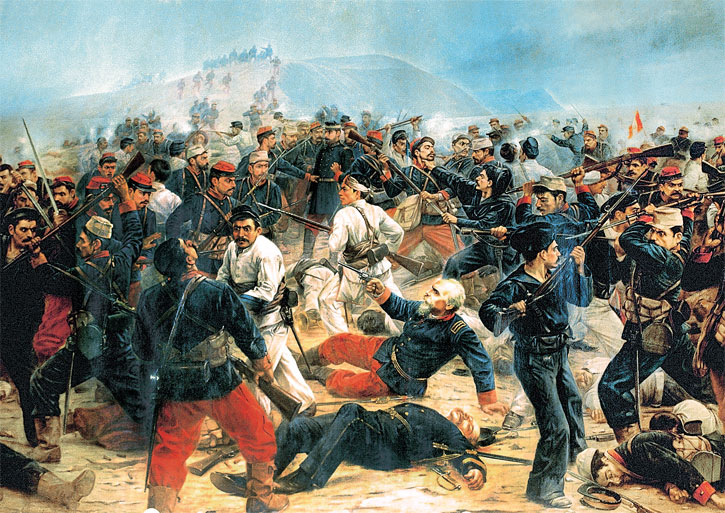By Sarah Bakhtiari

Europe experienced its share of turmoil this week, with an attack in Copenhagen by a lone-wolf terrorist apparently motivated by Islamic fundamentalism. The attack, partially directed at a Jewish synagogue, prompted Israeli PM Netanyahu to invite the Jewish diaspora home to the safety of Israel.
Is anti-Semitism on the rise in Europe? Many Jewish leaders think so, but it’s difficult to quantify. The randomized response technique may provide some better estimates on the prevalence of anti-Semitism.
Meanwhile, the Greeks are facing European ultimatums to maintain fiscal austerity, despite the self-proclaimed “humanitarian crisis” it’s caused. Could GDP-linked bonds be a part of the solution to Greece’s woes, or will continued austerity compel Greece to tough it out, despite the humanitarian costs?
Despite brokering a deal in Minsk just last week, heads of state from France, Germany, Russia, and Ukraine attempted to salvage the cease-fire agreement as separatists took over the city of Debaltseve, a strategic railroad hub. Surprised? The complicated political geography of the southeast region of Ukraine and Crimea belie Putin’s claims to a unitary community, suggesting that we shouldn’t be.
The New York Times Magazine has a long, fascinating article on the investigation into Rafik Hariri’s assassination.
Are we at war with ISIS? The U.S. Attorney General and Secretary of State don’t think so. The UN Security Council, on the other hand, passed a resolution that intensified sanctions and implored regional states to seize oil tankers that keep funds flowing to ISIS. ISIS may be expected to lose ground in Iraq ultimately, but the group’s impact on ethno-sectarian politics in the Middle East is there to stay. And it’s no wonder, given their problematic pseudo-state, non-unitary structure. But what caused ISIS’ rise in the first place? That’s a tricky question to answer.
From Chicago to Guantanamo Bay, the history of state-sponsored American torture runs deep, writes Spencer Ackerman in the Guardian.
In North Africa, ISIS widened its campaign to Libya, raising Italian fears of terrorist infiltration via smuggled migrant rescue operations off the coast. Elsewhere in North Africa, Egyptian President el Sisi defended the state’s crackdown on the Muslim Brotherhood and his battle against Islamic extremism, which he warns will affect Europe if not eradicated.
This week the White House hosted a summit on countering violent extremism around the world. President Obama outlined four focal points of potential governmental effort to do so: vigilance against terrorism, exposing faulty ideologies, addressing economic and political grievances, and cultural and religious respect. Devising the concrete steps to do so will fall to the UN General Assembly this September.
Boko Haram mystifies many observers and in an effort to rectify this Ryan Cummings dispels some common myths about the group. One tricky issue is Boko Haram’s relationship with ethnic politics in northeastern Nigeria, which are important, if not the most important factor in determining group membership.








1 comment
I have a question…do you think that it is more difficult to quantify Anti-Semitism than it is to quantify terrorism? I, also, would really like to get a better grasp of how we arrive at the conclusion of what is considered to be an act of terror…hopefully I am not asking too much…I just like to be informed…Thanks